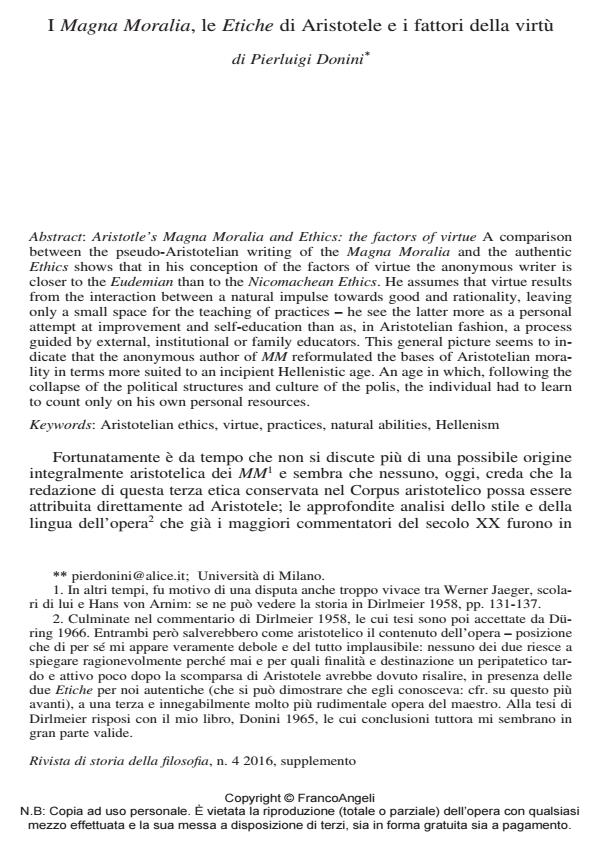Aristotle’s Magna Moralia and Ethics: the factors of virtue
Journal title RIVISTA DI STORIA DELLA FILOSOFIA
Author/s Pierluigi Donini
Publishing Year 2016 Issue 2016/suppl. 4
Language Italian Pages 17 P. 5-21 File size 122 KB
DOI 10.3280/SF2016-004-S1002
DOI is like a bar code for intellectual property: to have more infomation
click here
Below, you can see the article first page
If you want to buy this article in PDF format, you can do it, following the instructions to buy download credits

FrancoAngeli is member of Publishers International Linking Association, Inc (PILA), a not-for-profit association which run the CrossRef service enabling links to and from online scholarly content.
A comparison between the pseudo-Aristotelian writing of the Magna Moralia and the authentic Ethics shows that in his conception of the factors of virtue the anonymous writer is closer to the Eudemian than to the Nicomachean Ethics. He assumes that virtue results from the interaction between a natural impulse towards good and rationality, leaving only a small space for the teaching of practices – he see the latter more as a personal attempt at improvement and self-education than as, in Aristotelian fashion, a process guided by external, institutional or family educators. This general picture seems to indicate that the anonymous author of MM reformulated the bases of Aristotelian morality in terms more suited to an incipient Hellenistic age. An age in which, following the collapse of the political structures and culture of the polis, the individual had to learn to count only on his own personal resources.
Keywords: Aristotelian ethics, virtue, practices, natural abilities, Hellenism
Pierluigi Donini, Magna Moralia, le Etiche di Aristotele e i fattori della virtù in "RIVISTA DI STORIA DELLA FILOSOFIA" suppl. 4/2016, pp 5-21, DOI: 10.3280/SF2016-004-S1002